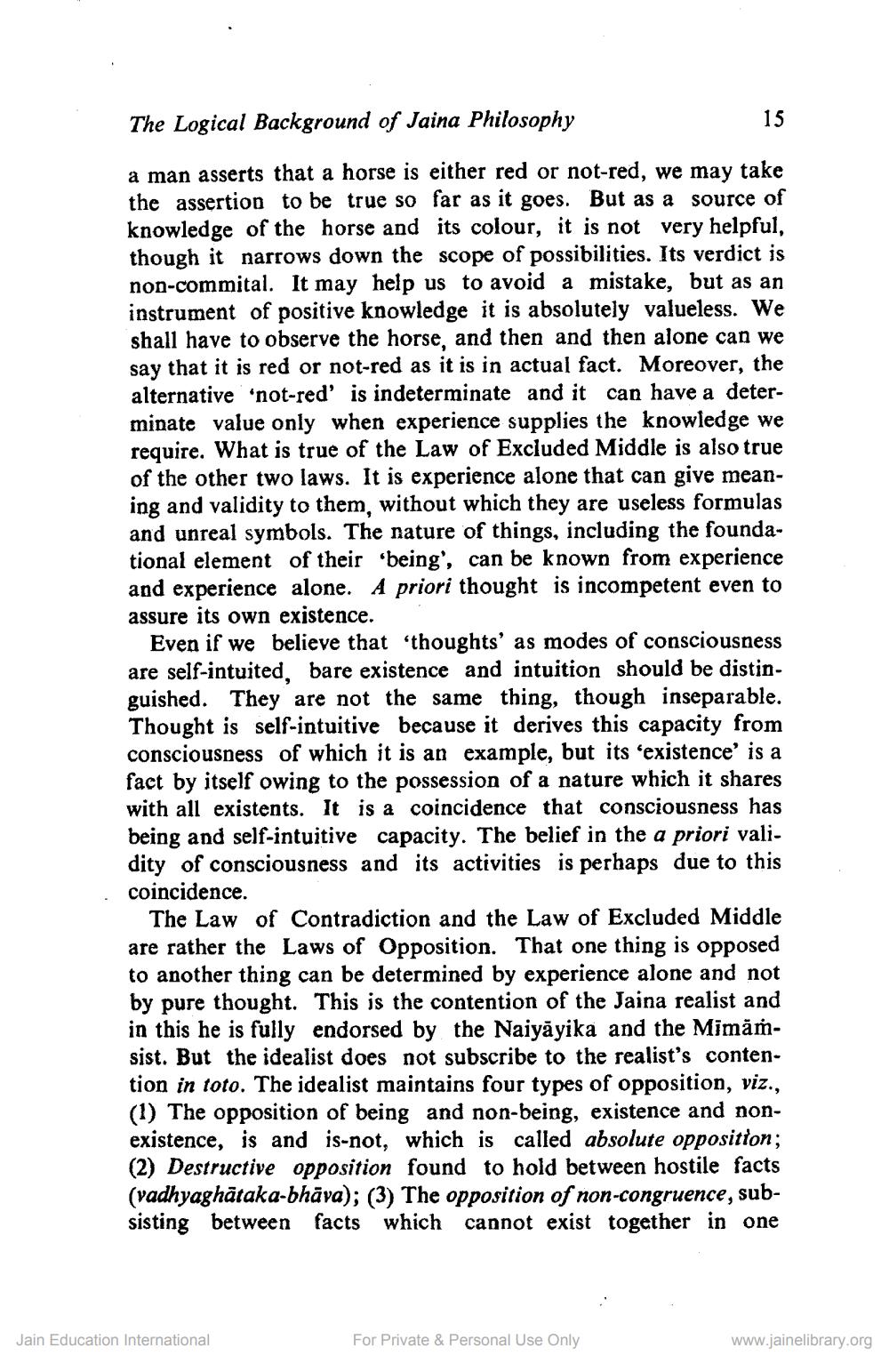________________
The Logical Background of Jaina Philosophy
15
a man asserts that a horse is either red or not-red, we may take the assertion to be true so far as it goes. But as a source of knowledge of the horse and its colour, it is not very helpful, though it narrows down the scope of possibilities. Its verdict is non-commital. It may help us to avoid a mistake, but as an instrument of positive knowledge it is absolutely valueless. We shall have to observe the horse, and then and then alone can we say that it is red or not-red as it is in actual fact. Moreover, the alternative not-red' is indeterminate and it can have a determinate value only when experience supplies the knowledge we require. What is true of the Law of Excluded Middle is also true of the other two laws. It is experience alone that can give meaning and validity to them, without which they are useless formulas and unreal symbols. The nature of things, including the foundational element of their being', can be known from experience and experience alone. A priori thought is incompetent even to assure its own existence.
Even if we believe that 'thoughts' as modes of consciousness are self-intuited, bare existence and intuition should be distinguished. They are not the same thing, though inseparable. Thought is self-intuitive because it derives this capacity from consciousness of which it is an example, but its 'existence' is a fact by itself owing to the possession of a nature which it shares with all existents. It is a coincidence that consciousness has being and self-intuitive capacity. The belief in the a priori validity of consciousness and its activities is perhaps due to this coincidence.
The Law of Contradiction and the Law of Excluded Middle are rather the Laws of Opposition. That one thing is opposed to another thing can be determined by experience alone and not by pure thought. This is the contention of the Jaina realist and in this he is fully endorsed by the Naiyāyika and the Mimāṁsist. But the idealist does not subscribe to the realist's contention in toto. The idealist maintains four types of opposition, viz., (1) The opposition of being and non-being, existence and nonexistence, is and is-not, which is called absolute opposition; (2) Destructive opposition found to hold between hostile facts (vadhyaghātaka-bhāva); (3) The opposition of non-congruence, subsisting between facts which cannot exist together in one
Jain Education International
For Private & Personal Use Only
www.jainelibrary.org




